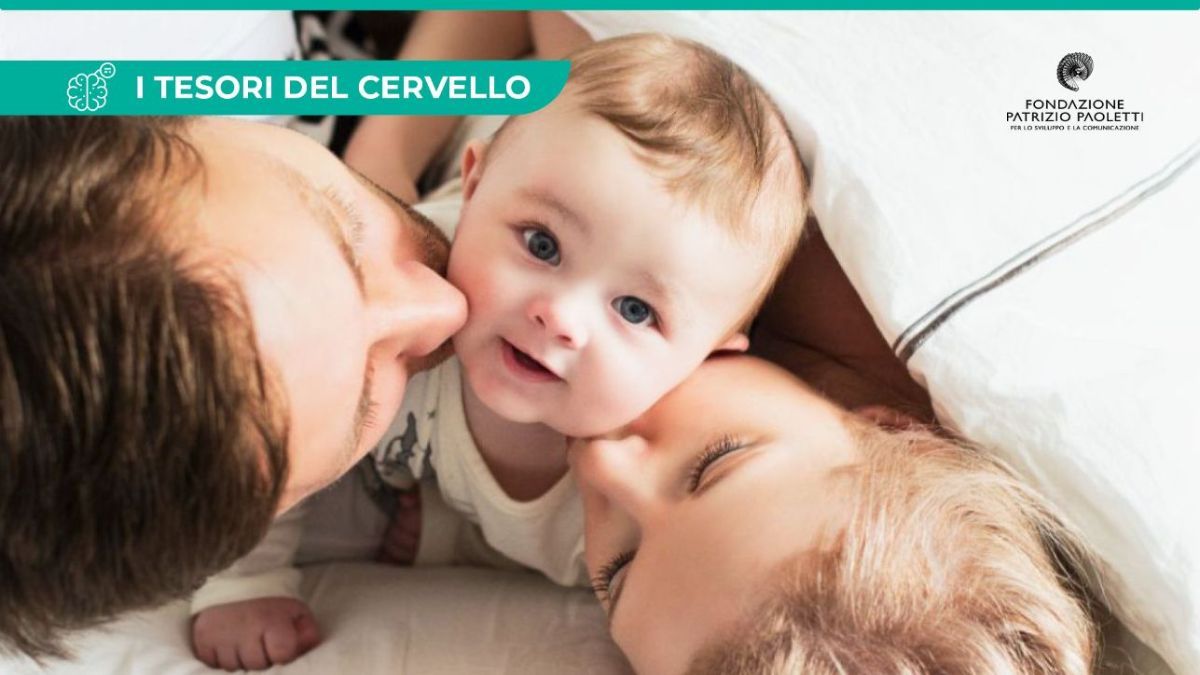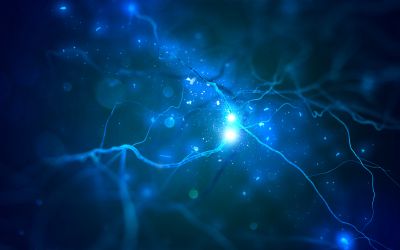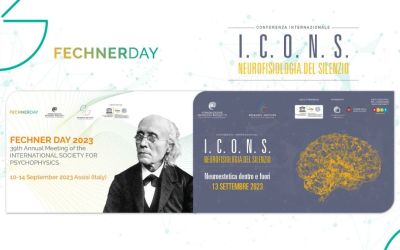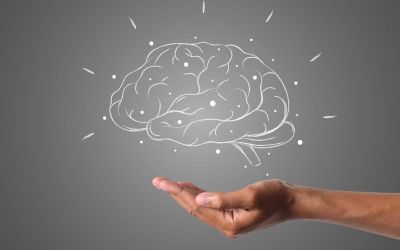
Becoming parents: the brain’s second life
It is a common experience and often reported by fathers and mothers that the arrival of a new born child starts a new and completely different life. This transformational experience can be seen from many points of view and neuroscientific research shows how profound the brain change is. What goes on in a mother’s brain has been studied for a long time, but more recently, data on fathers has also begun to be collected. These investigations are essential because they help us understand that parenthood is learned in an interaction between biological functioning and learning.
The brain during maternity
It is estimated that, according to research conducted in the western world, one in six women suffer from postpartum depression, as confirmed by the Ministry of Health, and many more develop behaviours such as compulsively washing their hands and obsessively checking if the baby is breathing. According to many researchers, investigating the maternal brain is the key to understanding why so many new mothers suffer from severe anxiety and depression.
Even before a woman gives birth to a child, pregnancy changes the structure of her brain. While the observation of behavioral changes in new mothers has a long tradition, neuroscientists have only recently begun to correlate the way a woman acts to what happens in her brain, i.e. in her prefrontal cortex, parietal lobes and other areas.
The most noticeable changes are increased activity in regions regulating empathy, anxiety and social interaction. These changes are accompanied by an increase in hormone production during pregnancy and in the postpartum period, which stimulate a new mother to feel attracted to her baby.
This biological data is very relevant and not always easy to interpret. In fact, while culture generally expects the birth of a child to be experienced as a particularly joyful event, a stereotyped representation of this very important event may fail to grasp the extent of the commitment, difficulty and responsibility that, along with the enormous joy, befall the new mother.
Effective education is part of prevention and an important protective factor, while increasing the chances of a healthy and satisfying relationship. From the perspective of the Pedagogy for the Third Millennium, discoveries about our brain functioning can serve as a basis precisely for improving educational processes, which is why we look at them in more detail.
The central role of the amygdala
Researchers are particularly interested in the almond-shaped neuronal structure known as the amygdala, which is involved in emotional memory and triggers reactions such as fear, anxiety and aggression. In a normal brain, activity in the amygdala increases in the weeks and months following birth. Researchers believe this growth is related to the behavior of the new mother, who becomes hypersensitive to her baby’s needs, while a cocktail of hormones, which find more receptors in a more active amygdala, create positive reinforcement for maternal behaviour. By simply looking at her baby, the reward centres of a mother’s brain switch on, as several studies have shown. This maternal brain circuit influences the affectionate way a mother talks to her baby, how attentive she is, even the affection she feels for her baby. It is natural, therefore, that damage to the amygdala is associated with higher levels of depression in mothers.
Activity in the amygdala is also associated with a mother’s strong feelings for her child compared to children in general. In a study published in 2011 on the amygdala response in new mothers, women reported feeling more positive feelings when looking at photos of their smiling babies compared to photos of smiling strangers, and their brain activity showed this difference. Scientists recorded a heightened brain response in the amygdala, thalamus and other areas as mothers looked at photos of their children.
A greater amygdala response when watching one’s children has been found to correlate with less maternal anxiety and fewer symptoms of depression. In other words, changes in a new mother’s brain help motivate her to care for her baby, but can also help protect her emotional state.
Oxytocin – the so-called happiness hormone – increases when women look at their babies, listen to their vocalizations and cries, or snuggle with them. An increase in oxytocin during breastfeeding could explain why researchers have found that breastfeeding mothers are more sensitive to the sound of their babies’ cries than non-breastfeeding mothers.
Understanding, therefore, that certain emotional experiences are enhanced by neurophysiological mechanisms, helps us understand the partly mechanical nature of these processes and thus to manage them consciously, without falling into the trap of unrealistic expectations determined by cultural myths.
Being parents and falling in love
According to Bartels e Zaki, becoming parents is much like falling in love. This helps explain how many new parents describe themselves when they meet their newborns. At the brain level, the networks that become particularly sensitized are those involving vigilance and social relevance, such as the amygdala, as well as the dopaminergic networks that incentivize prioritizing the infant. It was discovered that that same brain structure is what makes newborns smell so pleasantly to their mothers in a 2013 study.
The most significant brain changes occur with a mother’s first child, although it is not clear whether a mother’s brain ever returns to its pre-birth state, several neurologists have told me. And yet, brain changes are not limited to new mothers.
The brain during paternity
Men also show similar brain changes when they are deeply involved in childcare. Oxytocin does not appear to play a comparable role in fatherhood as it does in motherhood, but men show increased levels of oxytocin when interacting with their children, and they also develop increased activation in regions involved in emotional sensitivity, bonding and empathy.
This is true to the extent that it also has effects that may appear counterproductive. According to a recent study conducted by the Carlos III Health Institute in Madrid, the brains of new fathers undergo a 2% reduction in cortical volume after the birth of a child. The reason for this phenomenon is not yet clear, but one hypothesis is that it may foster a simpler connection between father and child. The study used MRI to evaluate the brains of 40 heterosexual fathers and found changes in cortical grey matter, the area of the brain involved in social understanding, and a reduction in volume in the visual system. These findings point to a possible role of the visual system in helping fathers recognize and respond to their children, i.e. a kind of hyper-focusing, a shift in priorities that even shows up at the level of the brain, changing its structure. The interpersonal relationship takes first place, or to put it in the words used during a conference on this subject by Patrizio Paoletti: Let us have children to enlarge our capacity to love.
Advice for mothers
Here, then, are some practical tips, based on research data, for cultivating mental well-being:
- Use relaxation, meditative practices, even short ones can be of great benefit. Alternatively, breathing exercises, guided relaxation, or even warm, comfortable showers can be helpful.
- Take a few breaks from your dedication to the child, remember that there is a biochemical mechanism that produces a very useful drive, but that it has to be managed. Listen to yourself, your needs, cultivate hobbies, relationships and anything that puts you in touch with your innermost emotions and aspirations.
- Don’t be afraid to ask for help, both for practical needs and emotional difficulties, you are facing a far-reaching and profound experience and social relationships are invaluable in this.
Advice for fathers
- Become aware of ongoing processes, which are important, but also temporary. Of course some couple dynamics will change when the new mother experiences such profound transformations at the brain level.
- Train yourself to support, aware that both of you are undergoing a profound transformation, but with decidedly different psychophysical characteristics and your role is valuable precisely for this reason.
- Always remain willing to learn, you become parents, so it is normal to feel insufficient in the initial stages while learning.
- Barrett, J., Wonch, K. E., Gonzalez, A., Ali, N., Steiner, M., Hall, G. B., & Fleming, A. S. (2012). Maternal affect and quality of parenting experiences are related to amygdala response to infant faces. Social neuroscience, 7(3), 252-268.
- Bartels, A., & Zeki, S. (2004). The neural correlates of maternal and romantic love. Neuroimage, 21(3), 1155-1166.
- Abraham, E., Hendler, T., Shapira-Lichter, I., Kanat-Maymon, Y., Zagoory-Sharon, O., & Feldman, R. (2014). Father’s brain is sensitive to childcare experiences. Proceedings of the National Academy of Sciences, 111(27), 9792-9797.
- Martínez-García, M., Paternina-Die, M., Cardenas, S. I., Vilarroya, O., Desco, M., Carmona, S., & Saxbe, D. E. (2022). First-time fathers show longitudinal gray matter cortical volume reductions: evidence from two international samples. Cerebral Cortex, 1, 8.
Be part of the change. Responsibly sharing content is an act of sustainability.
Let's train emotional intelligence: what emotion does this article arouse in you?









